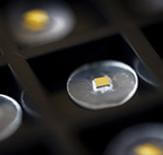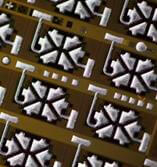_

Not everyone likes taking their medicine. Between just plain forgetfulness and a dislike for taste or side effects, many long term prescription users routinely miss taking their meds. That avoidance leads to $290 billion in medical costs in the US alone according to the New England Healthcare Institute. Between one third and one half of all Americans have missed taking their pills, but that could all change with Proteus Biomedical. As we described last year, and again recently, Proteus attaches an ingestible computer chip on pills so that an implanted or mobile device can track to see if you are actually swallowing them. Part of the Raisin™ system which is currently in clinical trials, tattle-tale pills may be a great way to keep you medicated.
Proteus’ system seems like such a revolutionary and worthwhile idea that Swiss pharmaceutical giant Novartis (NYSE: NVS) has partnered with Proteus for the clinical trials and beyond. According to the Financial Times, 20 patients have been studied as they use Novartis’ blood pressure medication Diovan with the Raisin system. Compliance has been boosted from 30% to 80% after six months. This high tech solution to combat pill avoidance is light years ahead of Pfizer’s solution: calling patients to remind them.

Just as the Internet is evolving into Web 2.0, so too are your body and healthcare. Body 2.0 will see a nearly continuous monitoring of your health through systems like Raisin, or Toumaz’s Sensium. While there are still magnificent leaps and bounds to be accomplished by finding new medications and techniques, the boon of Body 2.0 technologies is efficiency. By continually studying and adjusting your body, the effectiveness of current treatments is amplified. We can do more with the medicines we already have on hand. Not just $290 billion dollars saved, but millions of lives as well.
As always, the shift in efficiency leads the focus away from treating illnesses to living healthier. Most long term prescriptions have remarkably high success rates when taken regularly. The vast majority of us can live healthy lives if we just take care of daily maintenance for our bodies such as stress reduction, healthy eating, and exercise. Raisin, or any system that helps us discipline our health habits is bound to help us live longer and happier. That’s the promise of Body 2.0 and I hope that the partnership between Proteus and Novartis means that promise is gaining ground in the global marketplace.


